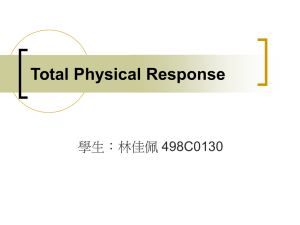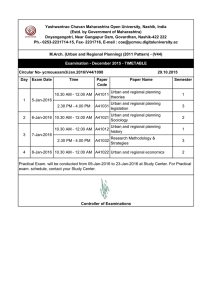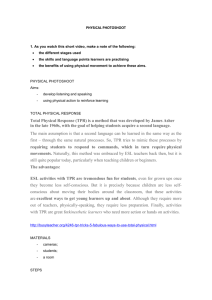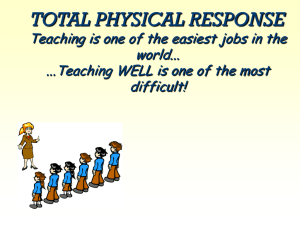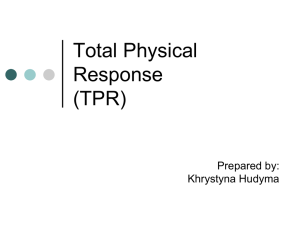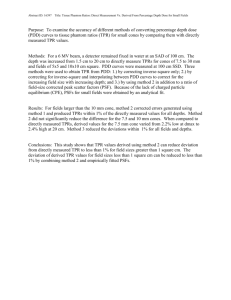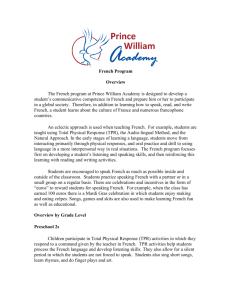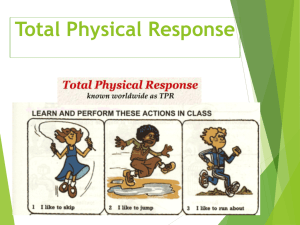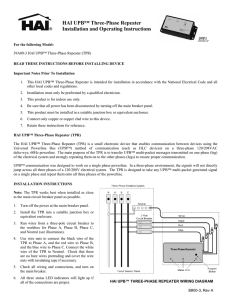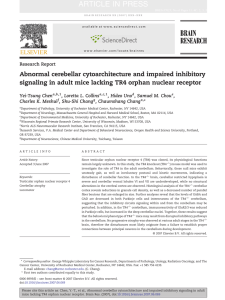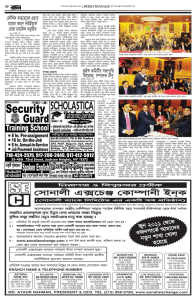Total Physical Response (TPR) Supervised By: Dr. Tariq Zakaria
advertisement
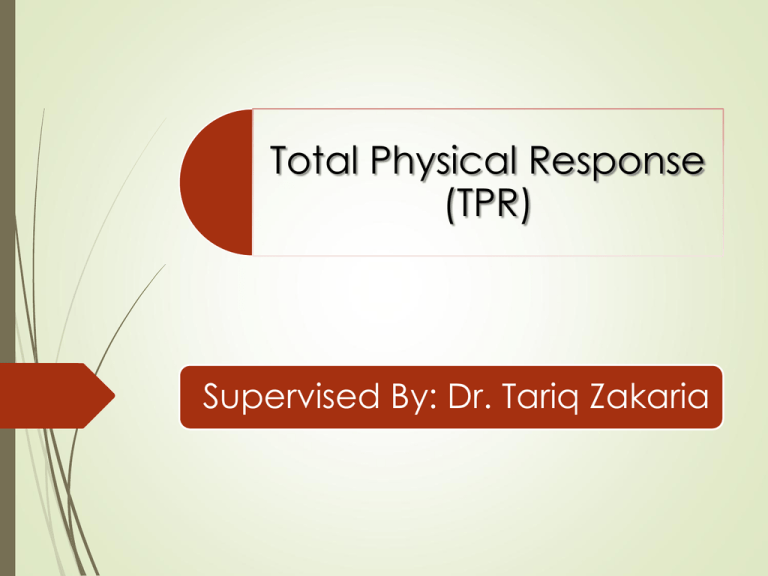
Total Physical Response (TPR) Supervised By: Dr. Tariq Zakaria TPR is… Total Physical Response (TPR) is a language teaching method built around the coordination of speech and action; it attempts to teach language through physical (motor) activity. Principles ● Prepare a script. ● Recycle language and review extensively. ● Don't change the target language. ● Incorporate some humor. ● Students don't “help” each other. Syllabus The syllabus is predictable from the exercises used in the class: A sentence-based syllabus with grammatical & lexical criteria being primary in selecting teaching items. TPR requires initial attention to meaning rather than to the form of items. Grammar is thus taught inductively. Objectives To teach oral proficiency at a beginning level and the ultimate aim is to teach basic speaking skills. To produce learners who are capable of free communication, which is understandable to a native speaker. Teacher roles The teacher plays an active and direct role in Total Physical Response. The instructor is the director of a stage play in which the students are the actors. It is the teacher who decides what to teach, who models and presents the new materials, and who selects supporting materials for classroom use. Learner roles Learners in Total Physical Response have the primary roles of listener and performer. They listen attentively and respond physically to commands given by the teacher. Learners are required to respond both individually and collectively. Materials For absolute beginners lessons may not require the use of materials since the teacher’s voice, actions and gestures may be sufficient. The teacher can use basic classroom objects such as books, pens etc. As the course develops, the teacher will need to collect new materials. These may include pictures, slides, word charts. Learning process 1- Review Teacher gives a summary of the last lesson. Teacher repeats the verbs/items etc. that were learned in the previous lesson. 2- New commands Giving the commands. Three commands at a time. Varying the sequence of commands. 3- Role Reversal Students commanding their teacher and classmates. 4- Reading and Writing Teacher writes new items on the blackboard Advantages TPR is fun and easy. TPR is inclusive. Good tool for building vocabulary for long-term retention. Does not require long preparations. Effective for both adult and young learners. Disadvantages Challenge for shy students. No opportunity to talk in a creative manner. Can become too repetitive and boring. Preparation becomes an issue at higher levels. Conclusions TPR is a language teaching method built around the coordination of speech and action TPR proved to be useful in second language acquisition But! In order to be successful TPR should be used in association with other methods and techniques. prepared by: Abdulrahman Altawalah Hamad Alfaheed Bader Aldakhil Haitham Almtier Abdulmohsen Almanea Abdullah Almahmoud
